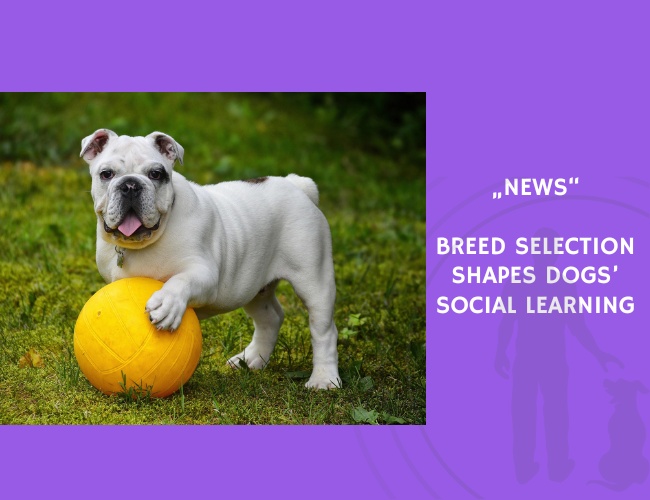Petra Dobos and P. Pongrácz (2023) investigated whether dogs’ ability to learn from humans varies across breeds shaped by different historical working functions. The study compared 78 dogs from 16 cooperative and 18 independent working breeds using a V-shaped detour task.
In the task, dogs had to obtain a reward placed behind a transparent fence. Some dogs watched a human demonstrator walk around the barrier before attempting the detour. Results showed that cooperative breeds improved their speed in subsequent trials when given a demonstration, while independent breeds showed no such improvement.
These findings suggest that selective breeding for cooperativity versus independent work shaped how dogs process and respond to human social cues. While training and keeping conditions did not significantly affect performance, the underlying breed function strongly influenced dogs’ social learning capacity.
This research highlights that dog–human cooperation is not uniform across breeds. Cooperative working dogs may be more naturally predisposed to align their behaviour with human actions, whereas independent breeds may rely more on individual problem-solving strategies.
Source: Dobos, P., & Pongrácz, P. (2023). Would You Detour with Me? Association between Functional Breed Selection and Social Learning in Dogs Sheds Light on Elements of Dog–Human Cooperation. Journal: Animals, Volume 13. Publication Date: 2023-06-01. Authors: Petra Dobos, P. Pongrácz. References: 67. Citations: 19.










